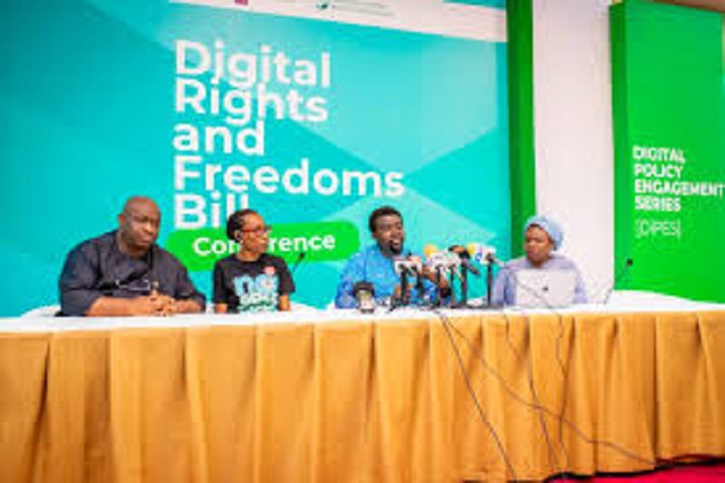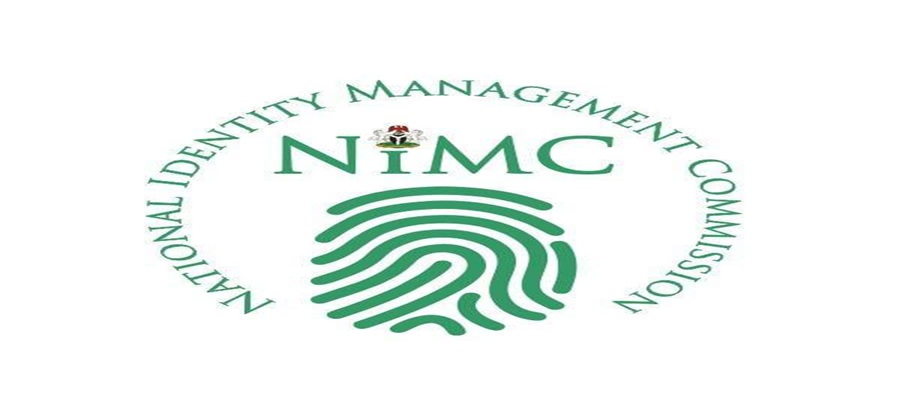Telecom
DRIF25: PIN Announces Call for Session Proposals

Stakeholders in the digital rights and inclusion space now have an opportunity to advocate for the same and shape policy development in the Global South.

This follows today’s call for session proposals by Paradigm Initiative (PIN) for the 2025 Digital Rights and Inclusion Forum (DRIF25) scheduled to be held in Lusaka, Zambia from April 29th to May 1st, 2025.
The session proposals should demonstrate tangible outcomes and be innovative.
At the same time, Paradigm Initiative will this time round provide delegates with an opportunity to support Digital Rights and Inclusion efforts by purchasing tickets for the event, which will be held under the theme, “Promoting Digital Ubuntu in Approaches to Technology.”
This new development resonates with the theme that calls for inclusive and collaborative approaches to advancing digital rights and inclusion across the Global South.
It also does not deny delegates the opportunity to register and attend the event for free. More details will be announced at a later date.
Sessions at DRIF25 will include panel sessions, lightning talks, pre-event workshops, exhibitions, launches, world cafe, workshops, tech demos and fireside chats.
They will be covered under the following thematic areas; Artificial Intelligence and Emerging Technologies, Trust and Accountability, Data Protection, Privacy and Cybersecurity, Digital Inclusion and Marginalised Groups, Digital Security, Human Rights and Freedoms.
The proposals should align with the event theme and demonstrate clear outcomes, creativity, and potential for impact.
Thobekile Matimbe, PIN’s Senior Manager, Partnerships and Engagements said in an era where technology profoundly shapes societies, DRIF25 is a call to action for advocates to champion and drive meaningful change in the Global South.
“This platform is not just about conversations but also pioneering solutions that reflect collective accountability and solidarity.
“By contributing to this event, participants lay building blocks for a more inclusive and responsive digital landscape.
“The journey to shape digital rights and foster unity in technological approaches has continued to gain momentum over the years,” she added.
In 2024, the organisation received 245 session proposals and hosted over 80 sessions, an increase from 2023’s 70 sessions. DRIF24 incorporated a blend of panel sessions, launches, tech demos, pre-event workshops, lightning talks and exhibitions under diverse tracks including digital rights, digital inclusion and digital security.
Key among them was the exclusive premiere of PIN’s fourth short film Undersight, and the launch of the organisation’s annual digital rights and inclusion report Londa, and digital toolkits, Ayeta, and Ripoti. The 2023 Londa report presented findings covering 26 African countries.
Every year, Paradigm Initiative (PIN), a leading pan-African non profit organisation works in collaboration with partners to bring together representatives from government, non-governmental organisations, academia, media, funding partners, the United Nations, the technical community, and the private sector within the digital ecosystem.
The event fosters collaboration across sectors, encouraging input from relevant stakeholders.
PIN is partnering with Bloggers of Zambia, Common Cause Zambia, Internews Network Zambia, Zambian Cybersecurity Initiative Foundation (ZCSI), Internet Society Zambia, Zambia Information and Communication Technology Authority (ZICTA) and the Ministry of Technology and Science to host the DRIF25 event.
Since 2013, PIN and partners have successively held 11 DRIF editions, with 2025 being the 12th Edition. In 2024 DRIF was held in Accra, Ghana, attracting 1,044 registered attendees and delegates from 61 countries across the world. In 2023, DRIF which was held in Nairobi, Kenya was attended by 601 participants drawn from 54 countries across the world.
DRIF has grown significantly over the years, evolving into a premier platform for dialogue on digital policy, rights, and inclusion, accommodating views and opinions from civil society, technology companies, government, academia, and other stakeholders.
Telecom
Terra Moves to Expand in African Drone Sector, Secures $22m Funding

Olugbenga Agboola, Flutterwave CEO has joined a $22 million funding extension for Nigerian defensetech start-up Terra Industries as Africa’s fast-growing drone and security technology sector begins to attract capital far beyond traditional venture circles.

The round was led by Lux Capital, with participation from Agboola through Resilience17 Capital and returning investors including 8VC and Nova Global.
It follows an $11.75 million raise just weeks earlier, bringing Terra’s total funding to $34 million as the company accelerates expansion into high-risk security markets.
Terra, founded in 2024 by 24-year-old chief engineer Maxwell Maduka and CEO Nathan Nwachuku, builds autonomous drones and surveillance systems designed to protect critical infrastructure such as energy facilities, logistics corridors and industrial sites. The startup says it is already safeguarding assets worth billions of dollars while securing early federal and commercial contracts.
Agboola’s involvement highlights a broader shift in African tech investment patterns. While fintech has long dominated venture flows, escalating infrastructure sabotage and terrorism threats have elevated demand for locally developed security hardware.
“Nigeria’s drone ecosystem is rapidly evolving from hobbyist and mapping use cases toward industrial monitoring, border surveillance and energy protection, areas increasingly seen as foundational to economic stability.
“This is about backing infrastructure security at scale. Africa’s growth depends on resilient systems that protect critical assets,” said Agboola.
Terra CEO Nwachuku is adamant that locally engineered systems are better suited to African operating conditions. “We are building tools designed for the realities on the ground. Security technology should not always be imported when local innovation can respond faster and more effectively,” he stated.
Lux Capital partner Brandon Reeves underlined that the investor appetite, which has drawn fintech heavyweight interest such as Agboola, reflects rising cross-sector confidence in African defense technology as a commercial category. “Security is a prerequisite for economic growth,” he said.
“As Terra ramps production and expands regionally, its funding milestone illustrates a wider transformation. Drone and autonomous security platforms are no longer peripheral experiments but emerging pillars in Africa’s technology landscape, where fintech leaders and venture capital converge around safeguarding the infrastructure powering the continent’s next growth phase,” said Reeves
Telecom
Temu Assures Compliance Amid Nigeria Data Privacy Probe

Temu, the global e-commerce platform expanding in Nigeria, has officially addressed an inquiry from the Nigeria Data Protection Commission (NDPC) over alleged data privacy violations, confirming its commitment to compliance with the Nigeria Data Protection Act (NDPA) 2023.

Temu
The company’s response follows NDPC’s investigation into Temu’s data processing practices.
In a statement to Nigeria CommunicationsWeek, Temu stressed its dedication to local and international data protection standards, noting ongoing communication with the regulator. “At Temu, protecting user privacy and data security is a top priority. We are committed to complying with applicable laws and regulations in our data practices,” the statement read.
Temu further affirmed: “We can confirm that Temu has received the inquiry and is engaging with the Commission. We will continue to engage in open and constructive dialogue with the NDPC to address any questions or concerns.”
Under Dr. Vincent Olatunji’s leadership, NDPC has ramped up scrutiny of foreign digital platforms to safeguard Nigerian citizens’ personal data—from contact details to financial information—ensuring transparent and secure handling. For e-commerce giants like Temu, managing vast consumer data volumes demands strict regulatory alignment to sustain operations and trust in Africa’s biggest economy.
Industry observers view Temu’s proactive stance as a savvy bid to ease tensions, mirroring Nigeria’s firm handling of platforms like X (formerly Twitter) and fintechs. This engagement underscores NDPC’s rising clout, compelling investors and foreign entrants to prioritise data compliance costs.
Nigeria CommunicationsWeek sees Temu’s approach as a model for global retailers eyeing Nigeria’s booming digital retail sector through 2026.
Telecom
NIMC Rolls Out WorkflowPro for Paperless Correspondence

National Identity Management Commission (NIMC) has deployed WorkflowPro as its official platform for the digital submission and management of correspondence.

NIMC
Kayode Adegoke Phd, Head, Cooperate Communications of NIMC said this in a press statement on Tuesday, 17th February, 2026, pointing out that this was “In furtherance of President Bola Ahmed Tinubu’s Renewed Hope Agenda and the Federal Government’s commitment to institutionalizing a paperless public service.”
According to the statement, “The adoption of WorkflowPro marks NIMC’s formal transition to a paperless operating environment and reflects the Commission’s resolve to strengthen governance, improve administrative efficiency, and standardize records management in line with approved public sector reforms. The platform provides a secure, structured, and traceable system for managing both internal and external communications, thereby enhancing accountability and operational transparency.
“Under the new framework, all external correspondence to NIMC will be processed electronically through WorkflowPro. The system enables end-to-end tracking of submissions, accelerates internal routing and response timelines, and ensures secure electronic archiving of official records. This approach eliminates the risks associated with manual handling of documents while reinforcing compliance with established information management standards.”
Adegoke added that “The implementation of WorkflowPro is consistent with the Federal Government’s Enterprise Content Management (ECM) policy, which mandates the digitization of official records and the elimination of physical file movements across all Ministries, Departments, and Agencies (MDAs) .
“Accordingly, all external correspondence addressed to the National Identity Management Commission must be submitted via the NIMC WorkflowPro platform, accessible through the official portal link or by scanning the designated QR code:
Portal Link:https://workflowpro-nimc.com/Submit . Correspondence
To support effective implementation, NIMC has approved a 30-day transition period from the date of this announcement, during which stakeholders are expected to acquaint themselves with the new process. Upon the expiration of this period, the Commission will discontinue the acceptance of manually submitted letters and paper-based correspondence.
“WorkflowPro was developed by NIMC’s in-house technical team under the directive of the Director-General/Chief Executive Officer, Engr. (Dr.) Abisoye Coker-Odusote. The platform forms part of a broader institutional reform agenda aimed at strengthening the security of official communications, reducing administrative delays, and entrenching digital governance within the public service.
“The National Identity Management Commission enjoins all stakeholders to take note of this policy directive and ensure full compliance.”

 General News3 days ago
General News3 days agoJumia Targets Break-even in 2026 After Strong Q4 Surge

 General News3 days ago
General News3 days agoNigeria’s Banks Race to Meet CBN Recapitalisation Deadline Amid Verification Push

 General News3 days ago
General News3 days agoBOI, MTN Foundation Unveil N1Bn Fund for Women Entrepreneurs

 E-Financial3 days ago
E-Financial3 days agoNo VAT on Land, Buildings and Rent Under New Tax Law — Oyedele

 General News2 days ago
General News2 days agoUBA Unveils Diaspora Platform to Connect Global Africans with Investment, Wealth Opportunities

 News2 days ago
News2 days agoAfrican Leaders Highlight Africa’s AI Ambitions

 E-Financial3 days ago
E-Financial3 days agoCBN Slams Up to N10m Fine on Banks and Cheque Printers for Security Breaches

 General News2 days ago
General News2 days agoNDPC Orders Probe into Temu over Alleged Data Privacy Breaches


























